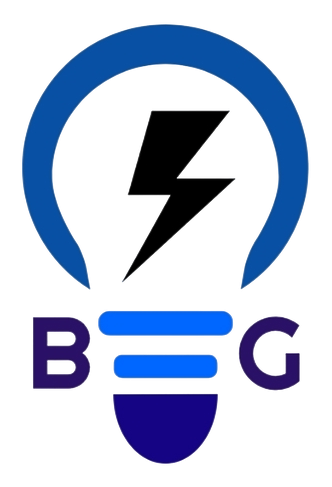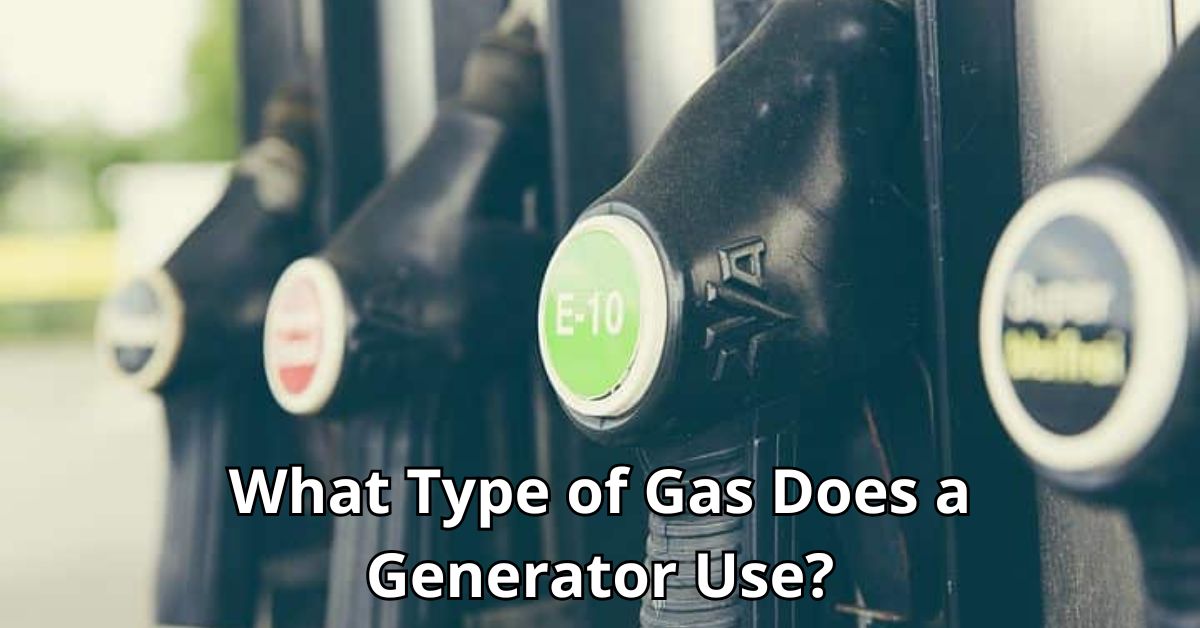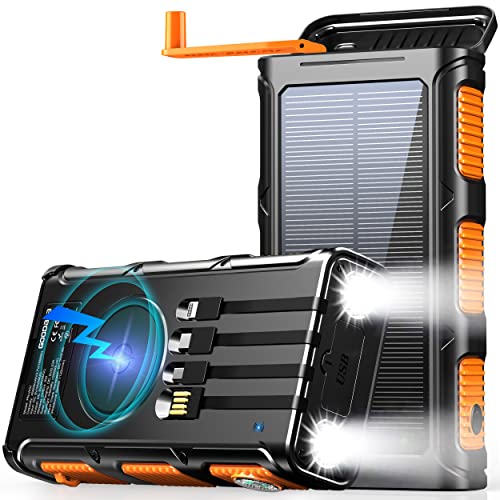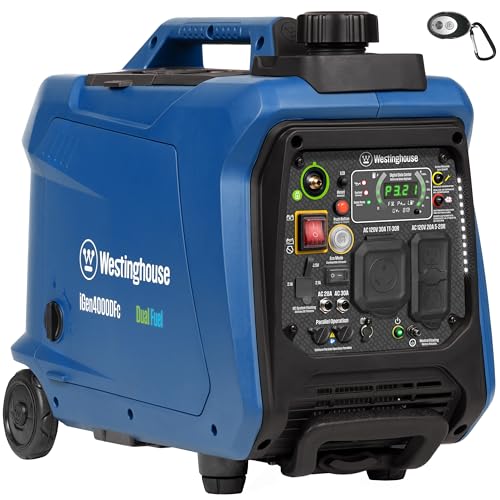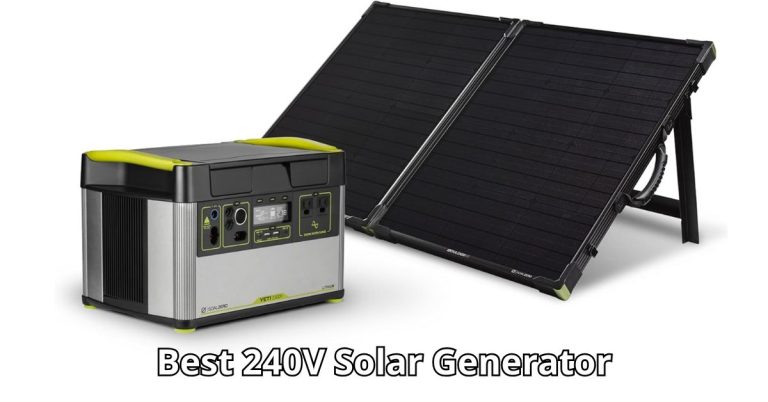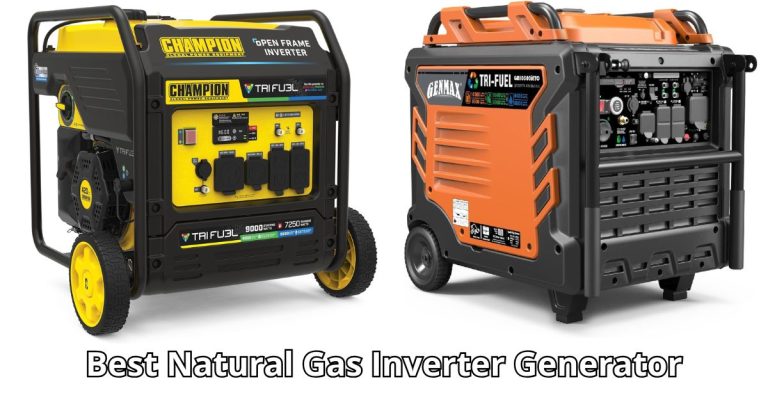What Type of Gas Does a Generator Use: Essential Guide
Generators typically use gasoline, diesel, propane, or natural gas. The type of gas your generator uses depends on its design and your power needs.
Generators are essential during power outages and in off-grid locations. They convert fuel into electrical energy, keeping your home or business running smoothly. Understanding the type of gas your generator uses is vital for safety and efficiency. Different fuels have unique benefits and drawbacks.
Knowing these can help you choose the right generator for your needs. Whether it’s gasoline for small, portable generators or propane for cleaner energy, the choice impacts your generator’s performance and maintenance. Let’s explore the types of gas used in generators to help you make an informed decision.

Credit: powertechteam.com
Introduction To Generator Fuel Types
Generators are essential machines that provide power during outages or in off-grid locations. Choosing the right type of fuel for your generator is crucial. Different fuel types offer various benefits and drawbacks. Understanding these can help you make an informed decision. Let’s dive into the different types of generator fuels and why the choice matters.
Purpose Of Generators
Generators serve many purposes. They provide backup power during blackouts. They are used in construction sites for running tools and equipment. Campers use them to power their appliances in remote areas. Businesses rely on them to keep operations running smoothly when the power goes out. In emergencies, they can be lifesavers by keeping critical systems operational.
Importance Of Fuel Choice
Choosing the right fuel type for your generator is vital. The type of fuel affects the generator’s efficiency, cost, and environmental impact. Here are the most common types of fuels used in generators:
| Fuel Type | Pros | Cons |
|---|---|---|
| Gasoline |
|
|
| Diesel |
|
|
| Propane |
|
|
| Natural Gas |
|
|
Each fuel type has its own set of advantages and disadvantages. Choose the fuel that best fits your needs. Consider availability, cost, and how often you will use the generator. The right fuel choice can make a big difference in performance and cost-effectiveness.
Gasoline-powered Generators
Gasoline-powered generators are common for home and outdoor use. They provide a reliable source of power during outages. These generators are popular due to their availability and ease of use.
Advantages Of Gasoline
Gasoline is easy to find. Most gas stations carry it. This makes it a convenient fuel choice for generators.
Gasoline-powered generators are often less expensive. Their initial cost is usually lower than other types of generators.
These generators are portable. You can move them easily to different locations.
Gasoline generators start quickly. They provide power right away, which is essential during emergencies.
Disadvantages Of Gasoline
Gasoline is flammable. It can pose a safety risk if not stored properly.
It has a short shelf life. Gasoline can degrade over time, reducing its effectiveness.
Gasoline engines require regular maintenance. They need oil changes and other upkeep to run smoothly.
These generators can be noisy. The sound may be disruptive in quiet neighborhoods.
Gasoline prices can be unpredictable. This can affect the cost of running your generator over time.
Propane-powered Generators
Generators are vital for backup power during outages. They come in various types, including propane-powered generators. These generators offer unique advantages and some drawbacks. Understanding these helps in making an informed decision.
Benefits Of Propane
Propane-powered generators have several benefits:
- Clean Burning: Propane burns cleaner than gasoline and diesel. It produces fewer emissions.
- Long Shelf Life: Propane does not degrade over time. Gasoline can go bad in a few months. Propane stays good for years.
- Availability: Propane is widely available. Many homes have propane tanks already installed.
- Efficiency: Propane generators run more efficiently. They provide more power per gallon.
- Environmentally Friendly: Propane is non-toxic. It is not harmful to soil or water.
Drawbacks Of Propane
Despite the benefits, there are some drawbacks:
- Initial Cost: Propane generators can be more expensive to purchase. They require an initial investment.
- Storage: Propane needs special storage tanks. These tanks need to be installed and maintained.
- Cold Weather: Propane can be less efficient in very cold weather. It may not vaporize properly.
- Refueling: Refueling propane can be more complicated. Gas stations do not typically offer propane refills.
Overall, propane-powered generators are a reliable choice for many users. Their clean burning and long shelf life make them attractive. But one must consider the drawbacks before deciding.
Natural Gas Generators
Natural gas generators are a popular choice for many people. They run on natural gas, which is a clean and efficient fuel. These generators are often used in homes and businesses for backup power. Understanding the pros and cons of natural gas can help you decide if this type of generator is right for you.
Pros Of Natural Gas
Natural gas is a clean-burning fuel. This means it produces fewer emissions compared to other fossil fuels. It helps keep the air clean and reduces pollution.
Natural gas is also very efficient. It produces a lot of energy with a small amount of fuel. This means you can save money on fuel costs over time.
Another advantage is its availability. Natural gas is delivered through pipelines. This means you do not have to store large amounts of fuel on-site. It is always available when you need it.
Cons Of Natural Gas
One downside is the initial cost. Natural gas generators can be more expensive to install. This is because they need to be connected to the gas pipeline.
Another issue is dependency on the gas supply. If there is a disruption in the gas supply, your generator will not work. This can be a problem during natural disasters.
Lastly, natural gas is still a fossil fuel. While it is cleaner than other fuels, it is not a renewable resource. Using it still contributes to the depletion of natural resources.
Diesel Generators
Diesel generators are a popular choice for many applications. They are known for their durability and efficiency. They are commonly used in industrial and commercial settings. But what makes diesel generators a go-to option for many?
Advantages Of Diesel
Diesel generators offer several advantages that make them desirable. Here are some key benefits:
- Fuel Efficiency: Diesel engines are more fuel-efficient compared to gasoline engines.
- Longevity: Diesel engines tend to last longer due to their robust construction.
- Low Maintenance: These generators require less maintenance. They do not have spark plugs or carburetors.
- Power Output: Diesel generators can produce more power. They are suitable for heavy-duty tasks.
- Safety: Diesel fuel is less flammable than gasoline. This makes diesel generators safer to use.
Disadvantages Of Diesel
Despite the benefits, there are some downsides to using diesel generators:
- Initial Cost: Diesel generators are usually more expensive to purchase upfront.
- Noise: They tend to be noisier compared to other types of generators.
- Emissions: Diesel engines produce more emissions. This can be a concern for environmental impact.
- Fuel Availability: Diesel fuel may not be as readily available in remote areas.
Alternative Fuel Options
Generators can use various types of fuel. Exploring alternative fuel options can help you find the best choice for your needs. These options can offer benefits like cost savings, environmental friendliness, and flexibility. Let’s delve into some popular alternatives.
Biofuel Generators
Biofuel generators use fuels derived from plants and other organic materials. These generators are environmentally friendly, as biofuels produce fewer pollutants than traditional fuels. They can run on substances like biodiesel and ethanol.
- Biodiesel: Made from vegetable oils or animal fats.
- Ethanol: Produced from crops like corn and sugarcane.
Using biofuels can reduce your carbon footprint. They are renewable, which means they can be replenished over time. This makes biofuel generators a sustainable option.
Dual-fuel Generators
Dual-fuel generators offer flexibility. They can run on two types of fuel, usually gasoline and propane. This versatility allows you to switch between fuels based on availability and cost.
| Fuel Type | Advantages |
|---|---|
| Gasoline | Widely available, high energy output. |
| Propane | Long shelf-life, cleaner burning. |
Dual-fuel generators can be particularly useful during emergencies. If one fuel source runs out, you can switch to the other. This ensures your generator remains operational.
Both biofuel and dual-fuel generators offer unique benefits. Choose the option that best fits your needs and priorities.
Choosing The Right Fuel Type
Choosing the right fuel type for your generator is crucial. Different fuels offer various benefits and drawbacks. The right choice depends on your specific needs and circumstances.
Factors To Consider
Several factors can influence your fuel choice. The first is availability. The second is cost. The third is storage requirements. Each factor plays a significant role in your decision.
Cost And Availability
Cost and availability are major concerns. Gasoline is widely available. It is often the easiest to find. Propane is another option. It is clean-burning and has a long shelf life. Diesel is also available, but can be more expensive. It is efficient and has better fuel economy. Natural gas can be cost-effective, but it requires a steady supply.
Maintenance And Safety Tips
Maintaining your generator ensures it runs smoothly when you need it most. Following safety tips helps prevent accidents. Below are essential guidelines for proper storage and routine maintenance.
Proper Storage
Proper storage of your generator is crucial. It ensures longevity and safety.
- Location: Store your generator in a dry, clean area. Avoid damp places.
- Fuel Storage: Use approved containers for storing fuel. Keep them in a cool, ventilated space.
- Battery Care: Disconnect the battery if storing for a long period. This prevents discharge and damage.
Routine Maintenance
Routine maintenance keeps your generator in top condition. Regular checks and servicing are vital.
- Oil Change: Change the oil after every 50-60 hours of use. Refer to the manual for the correct type.
- Air Filter: Clean the air filter after every 25 hours of operation. Replace if it’s damaged.
- Spark Plug: Inspect the spark plug regularly. Replace it annually or after every 100 hours of use.
- Fuel System: Inspect for leaks and clean the fuel tank. This prevents clogging and ensures a smooth fuel flow.
Adhering to these maintenance and safety tips helps your generator perform efficiently. Regular care extends its life and ensures safe operation.
Environmental Impact
The type of gas your generator uses can impact the environment. Different fuels release varying levels of pollutants. Choosing the right fuel can help reduce harmful emissions. Let’s explore how different fuels compare in terms of environmental impact.
Emissions Comparison
Generators can run on different types of fuel. Each type has a different effect on the environment. Here’s a comparison of common fuels:
| Fuel Type | Carbon Emissions | Other Pollutants |
|---|---|---|
| Gasoline | High | CO, NOx, SO2 |
| Diesel | Moderate to High | PM, NOx, SO2 |
| Propane | Low to Moderate | CO, NOx |
| Natural Gas | Low | CO, NOx |
Gasoline and diesel generators emit high levels of carbon and other pollutants. These fuels contribute to air pollution and climate change. Propane and natural gas are cleaner options. They produce fewer pollutants and are better for the environment.
Sustainable Choices
Choosing a more sustainable fuel can make a big difference. Here are some options:
- Use natural gas or propane instead of gasoline or diesel.
- Consider renewable energy sources like solar-powered generators.
- Look for hybrid models that combine different fuel types.
Natural gas and propane are more eco-friendly. They produce fewer emissions. Renewable energy options are even better. Solar-powered generators have zero emissions. Hybrid models offer flexibility and can reduce your carbon footprint.
Switching to cleaner fuels can help protect the environment. It reduces pollution and supports a sustainable future. Make informed choices for a healthier planet.

Credit: www.angi.com

Credit: blueskysparky.com
Frequently Asked Questions
What Type Of Gas Does A Generator Use?
Generators typically use gasoline, diesel, natural gas, or propane. The choice depends on the generator’s design and intended use.
Can A Generator Run On Natural Gas?
Yes, many generators can run on natural gas. Natural gas is a convenient and clean fuel option.
Is Propane Better Than Gasoline For Generators?
Propane is often preferred due to its longer shelf life and cleaner emissions. It’s also safer to store.
Do All Generators Use The Same Fuel?
No, generators use various fuels like gasoline, diesel, natural gas, and propane. Each has its pros and cons.
Conclusion
Generators use various types of gas. Consider your needs and preferences. Choose between gasoline, propane, and natural gas. Each has its pros and cons. Gasoline is common and easy to find. Propane stores well and is clean-burning. Natural gas offers convenience if you have a gas line.
Always read your generator’s manual. It helps you select the right fuel. Make informed choices. Keep your generator running smoothly. Safe and efficient operation is key. Happy powering!
